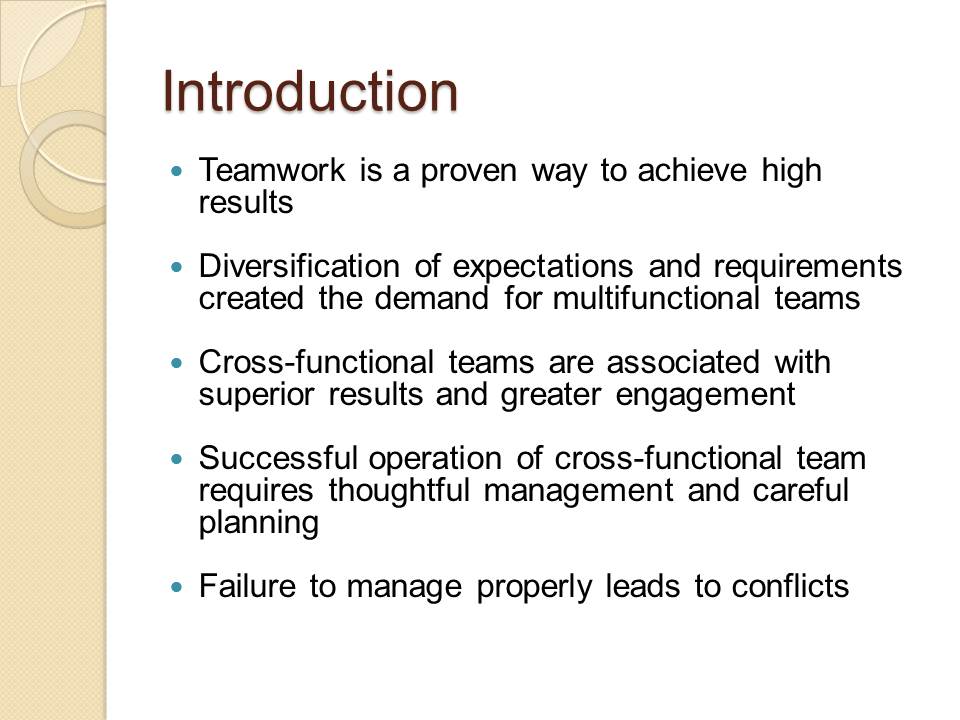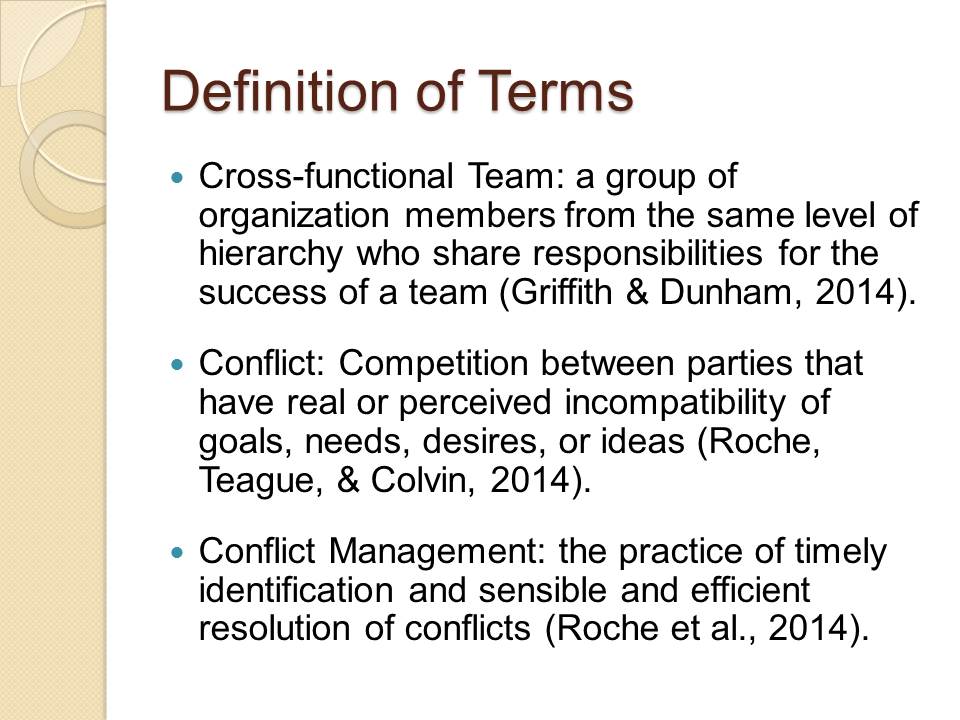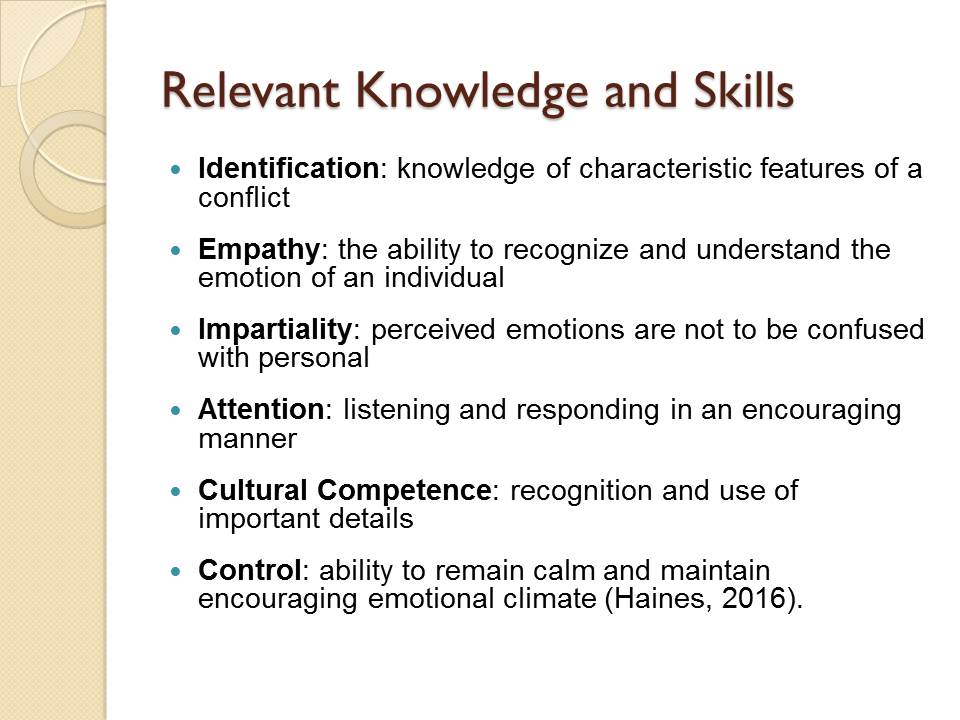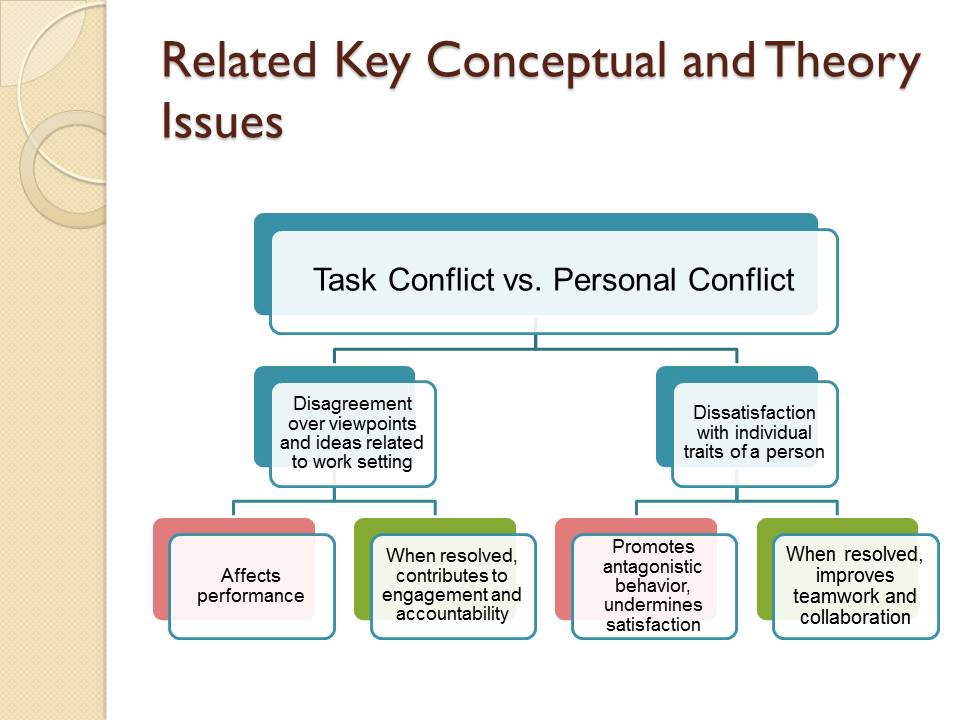Introduction
- Teamwork is a proven way to achieve high results;
- Diversification of expectations and requirements created the demand for multifunctional teams;
- Cross-functional teams are associated with superior results and greater engagement;
- Successful operation of cross-functional team requires thoughtful management and careful planning;
- Failure to manage properly leads to conflicts.
Cross-functional teams have become a standard of the modern workplace. With the constantly increasing complexity of the tasks posed by the contemporary world, creativity has become a necessary condition of successful organizational performance. However, cross-functional teams are also prone to conflicts than the traditional ones. The following presentation will illustrate the impacts of different types of conflicts on individual roles of team members and present ways of dealing with them with the help of emotional intelligence.

Definition of Terms
- Cross-functional Team: a group of organization members from the same level of hierarchy who share responsibilities for the success of a team (Griffith & Dunham, 2014).
- Conflict: Competition between parties that have real or perceived incompatibility of goals, needs, desires, or ideas (Roche, Teague, & Colvin, 2014).
- Conflict Management: the practice of timely identification and sensible and efficient resolution of conflicts (Roche et al., 2014).
Members of cross-functional teams need to have diversified competencies to be able to solve a wide range of tasks in a creative way. The value of a balanced and well-managed team is much higher than that of its individual members. This diversity is the cross-functional teams’ greatest weakness since it increases time necessary for developing synergy and often triggers conflicts between members. Proper conflict management practices are important for reaching a high degree of cooperation within a team in the shortest time possible.

Relevant Knowledge and Skills
- Identification: knowledge of characteristic features of a conflict;
- Empathy: the ability to recognize and understand the emotion of an individual;
- Impartiality: perceived emotions are not to be confused with personal;
- Attention: listening and responding in an encouraging manner;
- CulturalCompetence: recognition and use of important details;
- Control: ability to remain calm and maintain encouraging emotional climate (Haines, 2016).
Successful conflict manager is expected to possess a set of skills and demonstrate adequate knowledge in certain areas in order to successfully detect and resolve the conflict within the group.

Related Key Conceptual and Theory Issues
Task Conflict vs. Personal Conflict
- Disagreement over viewpoints and ideas related to work setting:
- Affects performance;
- When resolved, contributes to engagement and accountability.
- Dissatisfaction with individual traits of a person:
- Promotes antagonistic behavior, undermines satisfaction;
- When resolved, improves teamwork and collaboration.
Task conflict can have several positive influences when timely identified and addressed. It encourages group discussions of tasks and ideas (which improves understanding of the goals) and empowers team members to voice their opinions (contributing to commitment and making individual contributions visible). Personal conflict is usually harder to deal with and contains more risks for the group. Focus on individual issues dilutes the focus on the common goal and the stress levels rise in the workplace (which has a detrimental effect both on satisfaction and performance).
Importantly, personal and task conflicts often emerge simultaneously or closely follow one another, making a successful resolution much more difficult and the negative outcomes more likely.

References
Griffith, B. A., & Dunham, E. B. (2014). Working in teams: Moving from high potential to high performance. Thousand Oaks, CA: SAGE Publications.
Haines, S. (2016). The new manager’s survival guide: Everything you need to know to succeed in the corporate world. New York, NY: McGraw Hill Professional.
Roche, W. K., Teague, P., & Colvin, A. J. (Eds.). (2014). The Oxford handbook of conflict management in organizations. Oxford, England: Oxford University Press.